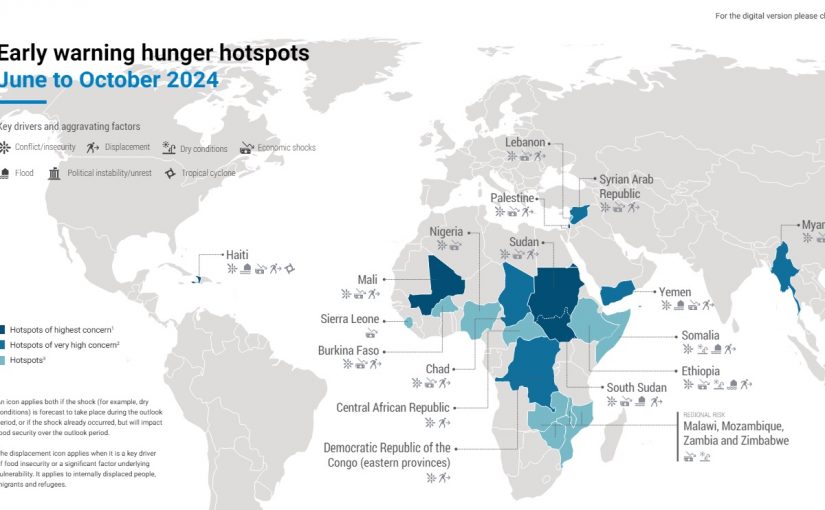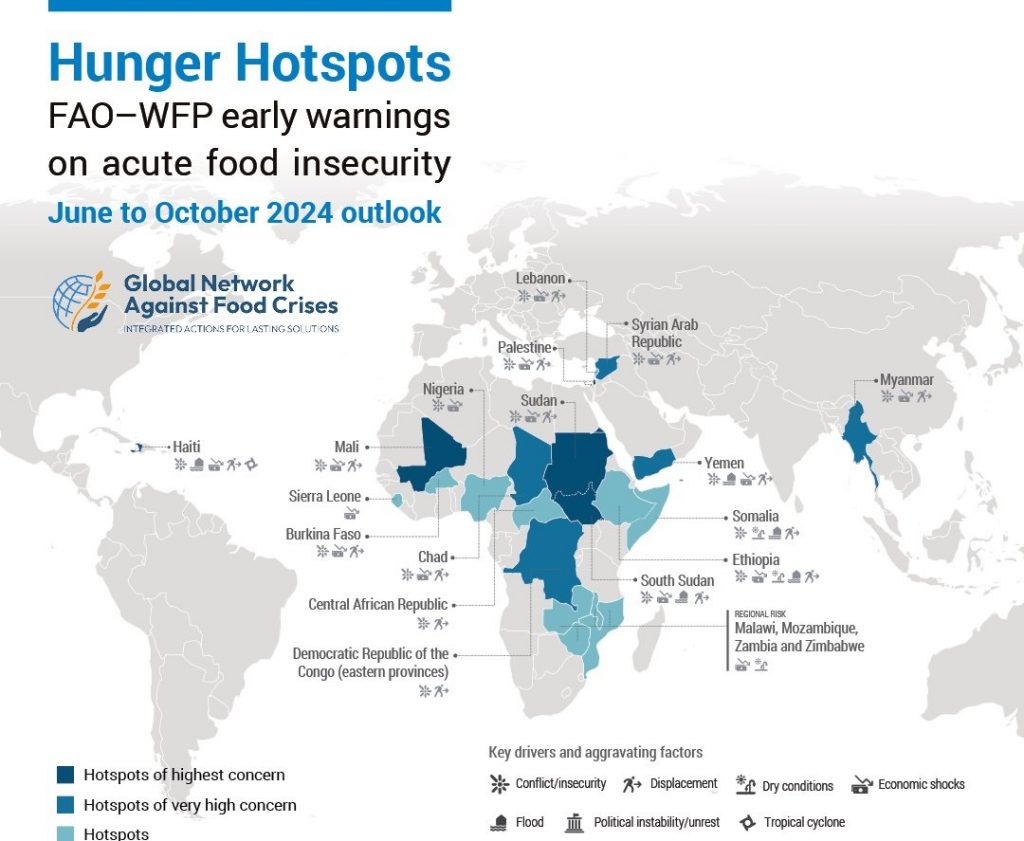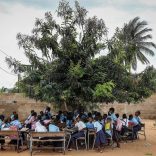Mozambique: Niassa province reports 99 malaria deaths, 448,526 cases in first half of 2025
Mozambique: UN agencies add country to list of world’s hunger hotspots

Image: FAO
Mozambique is among the countries added to the list of the world’s hunger hotspots in a report released on Wednesday by United Nations agencies, which point to violence and armed conflict as the main causes of acute global food insecurity.
According to the report “Hunger Hotspots: FAO-WFP early warnings on acute food insecurity, June to October 2024 outlook” by the UN Food and Agriculture Organisation (FAO) and the World Food Programme (WFP), published on Wednesday, Mali, South Sudan, Sudan and Palestine continue to register the highest concern level , while Chad, the Democratic Republic of the Congo (eastern provinces), Myanmar, the Syrian Arab Republic and Yemen are hotspots of very high concern
“All these hotspots have a high number of people facing or projected to face critical levels of acute food insecurity, coupled with worsening drivers that are expected to further exacerbate life-threatening conditions in the coming months,” the document states.
“Since the October 2023 edition, the Central African Republic, Lebanon, Mozambique, Myanmar, Nigeria, Sierra Leone and Zambia have been added to the list of hunger hotspots, while Burkina Faso, Ethiopia, Malawi, Somalia and Zimbabwe remain hunger hotspot countries,” the document reads..

In situations of violence, “widespread displacement, the destruction of food systems and reduced humanitarian access are likely to exacerbate food availability and access,” they add.
“Conflict and displacement also continue at an alarming pace and magnitude in the Sudan, deepening the burden on neighbouring countries hosting a steadily growing number of refugees and returnees – especially in South Sudan and Chad.,” reads the report.
The Central Sahel region also “continues to experience disruptive instability,” with the rise in violence increasing the displacement of civilians.
“The withdrawal of UN peacekeeping missions in Mali, the Democratic Republic of the Congo and Somalia is expected to create security vacuums, which could be exploited by NSAGs [non state armed groups]– further exposing civilians to violence,” they say.
According to the report, in the rest of the Horn of Africa, conflict in Ethiopia will continue affecting agricultural livelihoods
Another consequence of the conflicts is “a contraction of economic growth in emerging markets and developing economies”.
“Many countries worldwide continue struggling with high debt levels – preventing many governments from protecting their most vulnerable rom protecting their most vulnerable populations – – while there are no clear signs of relief from the high costs of debt,” they warn.
Hunger is also exacerbated by extreme weather events such as excessive rainfall, tropical storms, cyclones, floods, droughts and increased climate variability.
During the month of February, in Mozambique, Malawi, Zambia and Zimbabwe, an extended period of drought affected crops at the time when water was most needed for their development.
“The La Niña phenomenon – which corresponds to the anomalous cooling of the surface waters of the Pacific Ocean – is expected to prevail between August 2024 and February 2025, significantly influencing the distribution of rainfall and temperatures,” they say.
This phenomenon could improve agricultural prospects, but it also increases the risk of flooding in parts of South Sudan, Somalia, Ethiopia, Chad, Mali, Nigeria, Sudan and Haiti, the report concludes.
- You may read, download the full “Hunger Hotspots: FAO-WFP early warnings on acute food insecurity, June to October 2024 outlook” HERE












Leave a Reply
Be the First to Comment!
You must be logged in to post a comment.
You must be logged in to post a comment.